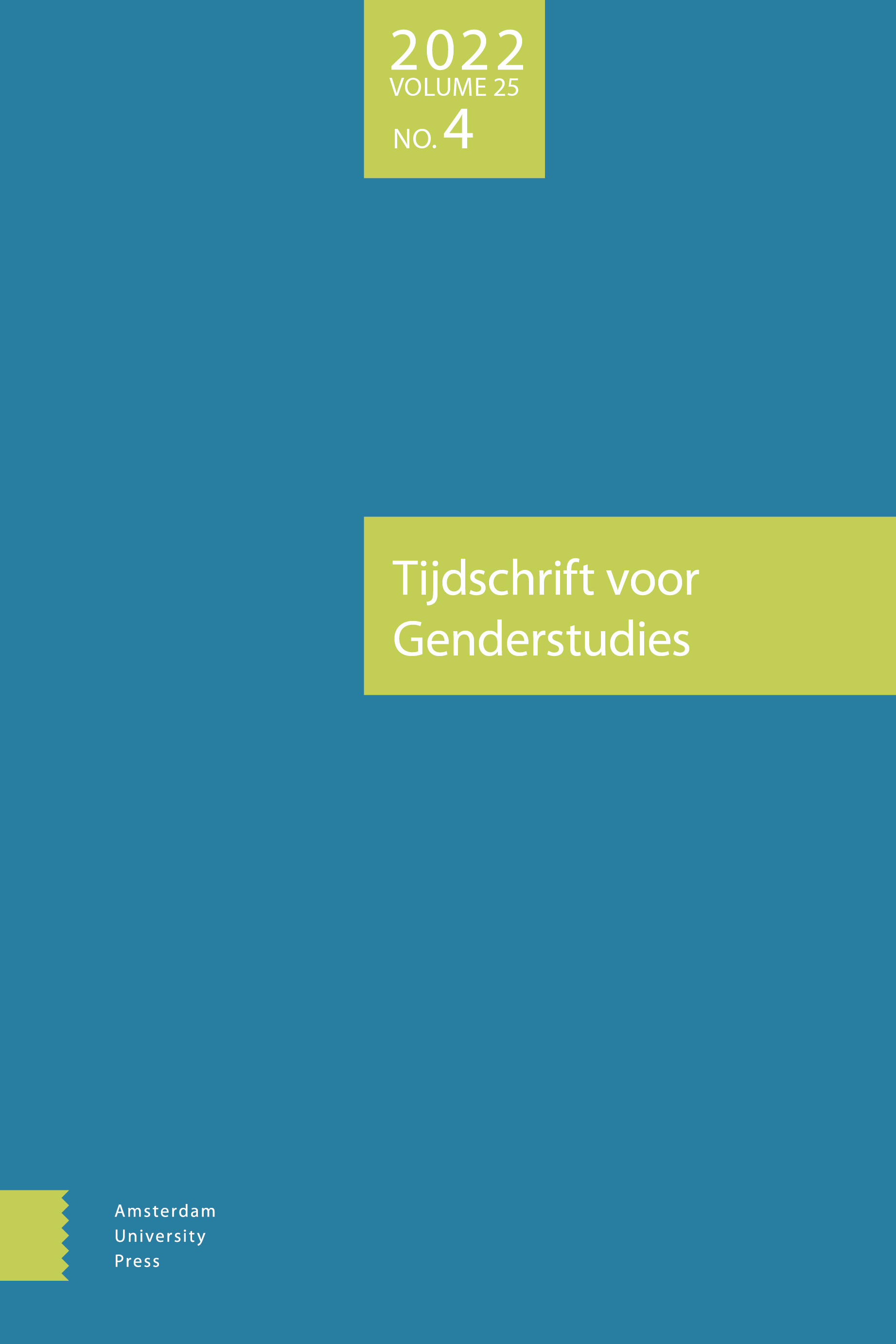-
oa Researching violence against women during pregnancy: A reflexive account to illuminate insights gained from researching violence against women, utilising an intersectional approach
- Amsterdam University Press
- Source: Tijdschrift voor Genderstudies, Volume 24, Issue 2, Jul 2021, p. 213 - 223
-
- 01 Jul 2021
Abstract
An intersectional and reflexive approach is vital in researching violence against women (VAW). It offers insights into researcher–participant relations, the research design and process, and the collection and analysis of data. Furthermore, it illuminates potential blind spots due to, for example, socialisation, values, or beliefs. Particularly in VAW, such insights are needed to inspire social change and social action. In this essay, we use an intersectional framework for our reflexive interrogation of our research on intimate partner violence (IPV) during pregnancy. We highlight potential aspects of re-enforcing or reproducing characteristics of IPV in research projects and via power relations in research collaboration and emphasise the need for explicit reflexivity in VAW research to do this.


